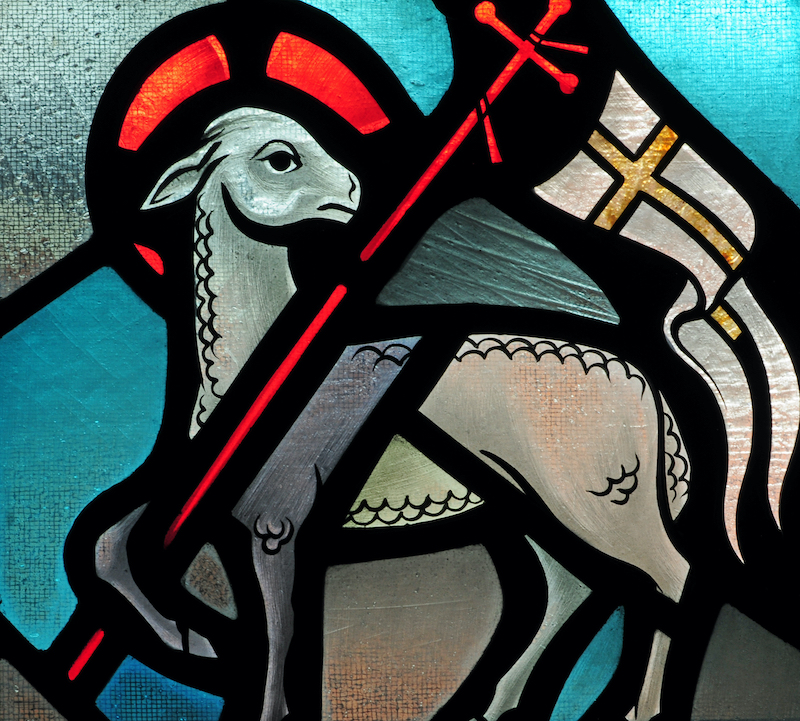 “Good things come to those who wait.” It is a hard saying, whether or not you are waiting for a sip of Guinness at the day’s end, or for a splash of ketchup to land on your cheeseburger. In this season of Lent, we are waiting for good things. We are waiting for the rapid manufacture and delivery of masks, ventilators and other equipment and medicines to fight and stop the spread of the COVID-19 virus. Those of us who have lost jobs, or will be temporarily laid off, are waiting for the financial tools to ensure that our families have adequate shelter, food, medical care, and the other necessities of life. Parents and children are waiting for a return to the routine of school, freedom to play with other children, trips to the beach, family gatherings, a night at the movies with popcorn and candy in hand. We are all waiting to return to the daily rhythms of life— to a time when we didn’t give a second thought to working out at the gym, attending a game or concert, walking on the beach, hugging a friend, or gathering to share coffee and doughnuts with our chums.
“Good things come to those who wait.” It is a hard saying, whether or not you are waiting for a sip of Guinness at the day’s end, or for a splash of ketchup to land on your cheeseburger. In this season of Lent, we are waiting for good things. We are waiting for the rapid manufacture and delivery of masks, ventilators and other equipment and medicines to fight and stop the spread of the COVID-19 virus. Those of us who have lost jobs, or will be temporarily laid off, are waiting for the financial tools to ensure that our families have adequate shelter, food, medical care, and the other necessities of life. Parents and children are waiting for a return to the routine of school, freedom to play with other children, trips to the beach, family gatherings, a night at the movies with popcorn and candy in hand. We are all waiting to return to the daily rhythms of life— to a time when we didn’t give a second thought to working out at the gym, attending a game or concert, walking on the beach, hugging a friend, or gathering to share coffee and doughnuts with our chums.
As Christians, we are waiting to live out the drama, majesty, mystery and miracle of Holy Week and Easter. We are waiting to reenact Jesus’ entry into Jerusalem with our Palms waving, our voices raised in song, and our ears listening to the gospel’s account of this momentous day as our lectors act out the story. We are waiting to wash one other’s feet as Jesus washed the disciples’ feet in a gesture of humility, service, and sacrificial love. We are waiting to eat the bread of life and sip from the cup of salvation as we celebrate the Thanksgiving Meal (the Holy Eucharist) Jesus instituted at the Last Supper. We are waiting for the stripping of the Altar, and the procession to the chapel with the reserved sacrament on Maundy Thursday. We are waiting for the darkness and emptiness of Good Friday, the stark realization of the horror and power of the cross Jesus died on to atone for our sins. We are waiting to shout at the Easter Vigil: “Alleluia. Christ is risen. The Lord is risen indeed. Alleluia!”
One of the many reasons I was excited about coming to St. Paul’s to serve as your interim rector is because of your reputation for doing liturgy extraordinarily well. St. Paul’s knows how to welcome all sorts and conditions of people as Christ welcomed the stranger. It knows how to offer liturgies to the glory of God with skill, beauty, and singleness of heart, in order that the the sick, the brokenhearted, the lonely, the downtrodden, the victim, the seeker and the faithful experience the good news of God’s love and forgiveness. Our worship is a cacophony of good things which sustain our souls and bodies— we taste and see the gracious abundance of God in the sacrament of the altar; we hear God’s word in Scripture and prayer. We sing God’s praises in the propers of the mass, in hymns and anthems. The luscious tones of the pipe organ lifts our spirits and sometimes shakes the ground beneath us. We are reconciled with God and each other. We touch each other in the embrace of the peace. We speak and pray for our own needs and for the needs of this community and the world. On high holy days, we even smell the sweet aroma of incense as our prayers ascend to heaven. We are all longing to participate in these good things, but we may have to wait longer than we thought. This year we will participate in these liturgies in new and different ways, some of which will be hard to wrap our minds around. We are invited, maybe kicking and screaming, to re-imagine what it means to worship in a time of social distancing.
It is important to acknowledge that given the fact that public worship is suspended throughout the diocese at least until the end of April, we cannot observe Holy Week and Easter in all the ways that are familiar and reassuring to us. It is also important to acknowledge and accept the fact that we cannot replicate the Holy Week and Easter liturgies virtually. That does not mean we cannot take full advantage of the technology we have to observe Holy Week and it does not mean that we cannot experience the life giving power of these liturgies. It means that we are not comparing apples to apples anymore. Of necessity, some things get lost in translation between the community gathered in person, and the body of Christ meeting via technology. That fact is most poignant when we consider that we cannot participate physically in the central act of worship, eating the body of Christ and drinking the cup of salvation. We cannot participate in the sacraments virtually, but we can share in the sacraments spiritually, knowing that we are fed by God, and that the grace of the sacrament previously received, has sustaining power that will carry us to that happy time when we wait no longer to gather together in person around the Lord’s table in our beautiful and sacred space. What a happy day that will be!
As we wait, here is what we can do. We can participate in Morning Prayer at 9 a.m and Compline at 8 p.m. on Tuesdays and Thursdays via Zoom. We can hold Adult Sunday school Class on Palm Sunday and then resuming on April 26. Our children can participate in Sunday school via Zoom. We can use the worship tool kit to find other resources for worship. We can study and use a resource called: “Home Worship, The Three Days” which is a reimagined way to participate in the Paschal Triduum at home. A copy of this resource will be posted on the website and we can send hard copies to those without computer access. Adam will be offering reflections on how best to use this resource. We can also live stream some streamlined Holy Week services. These will be limited in scope due to restrictions on public gatherings, but they will place us virtually in that holy space in which we all want to be. Good things come to those who wait. By very rough count, the word “wait” appears some 75 times in the Bible. “Wait patiently for the Lord, and He will give you your hearts desire.” Stay calm. Be safe. Be kind to one another. Pray often. This too shall pass. God bless you.
Peace,

Ray Hanna
Interim-Rector

